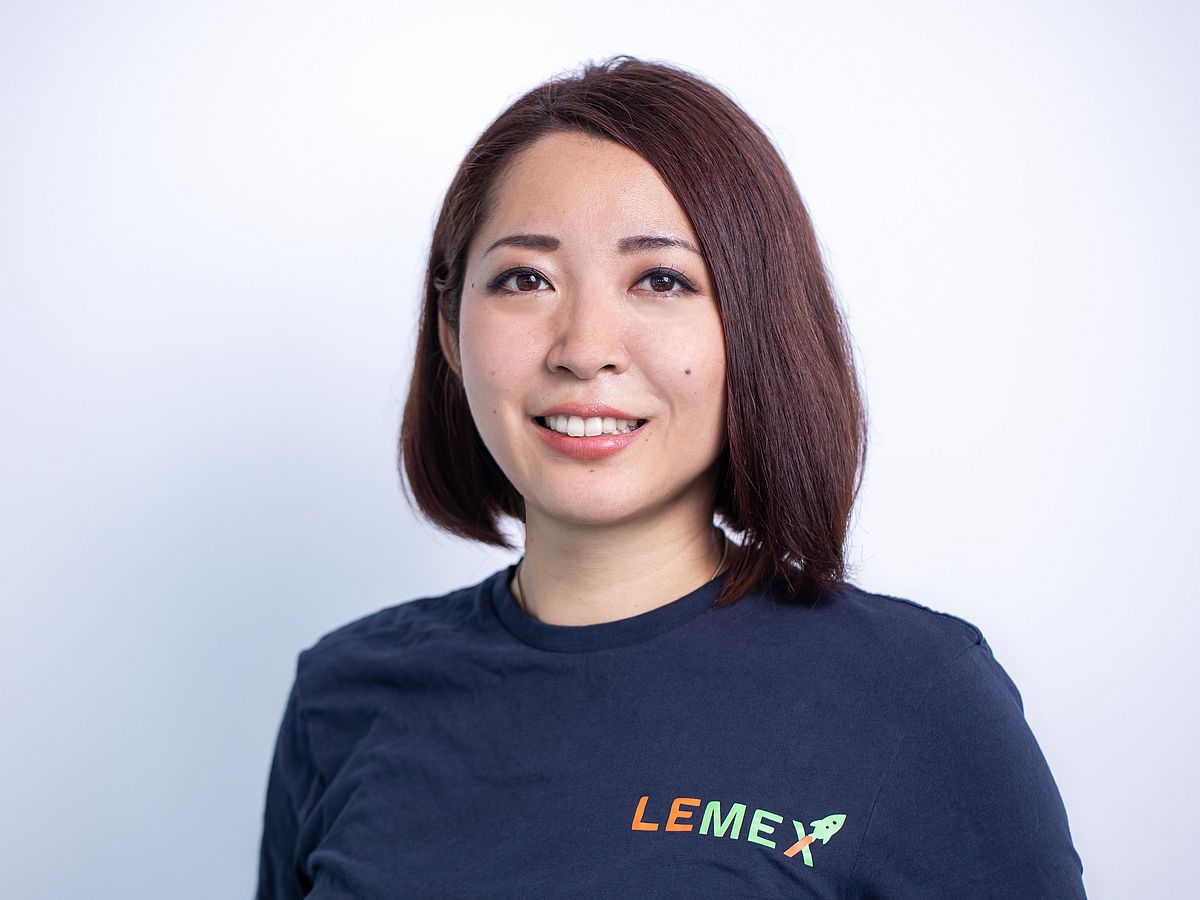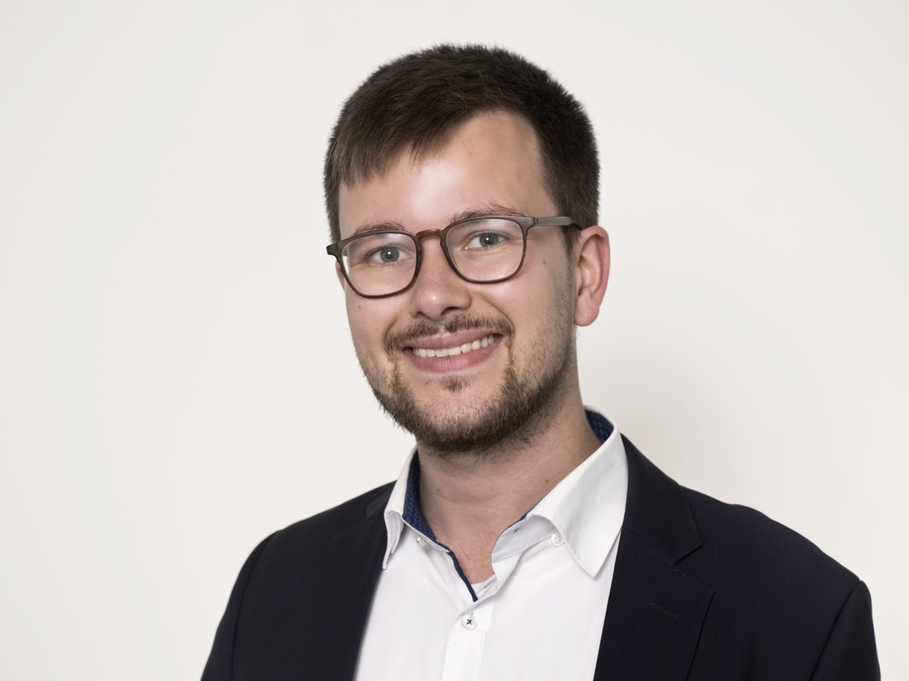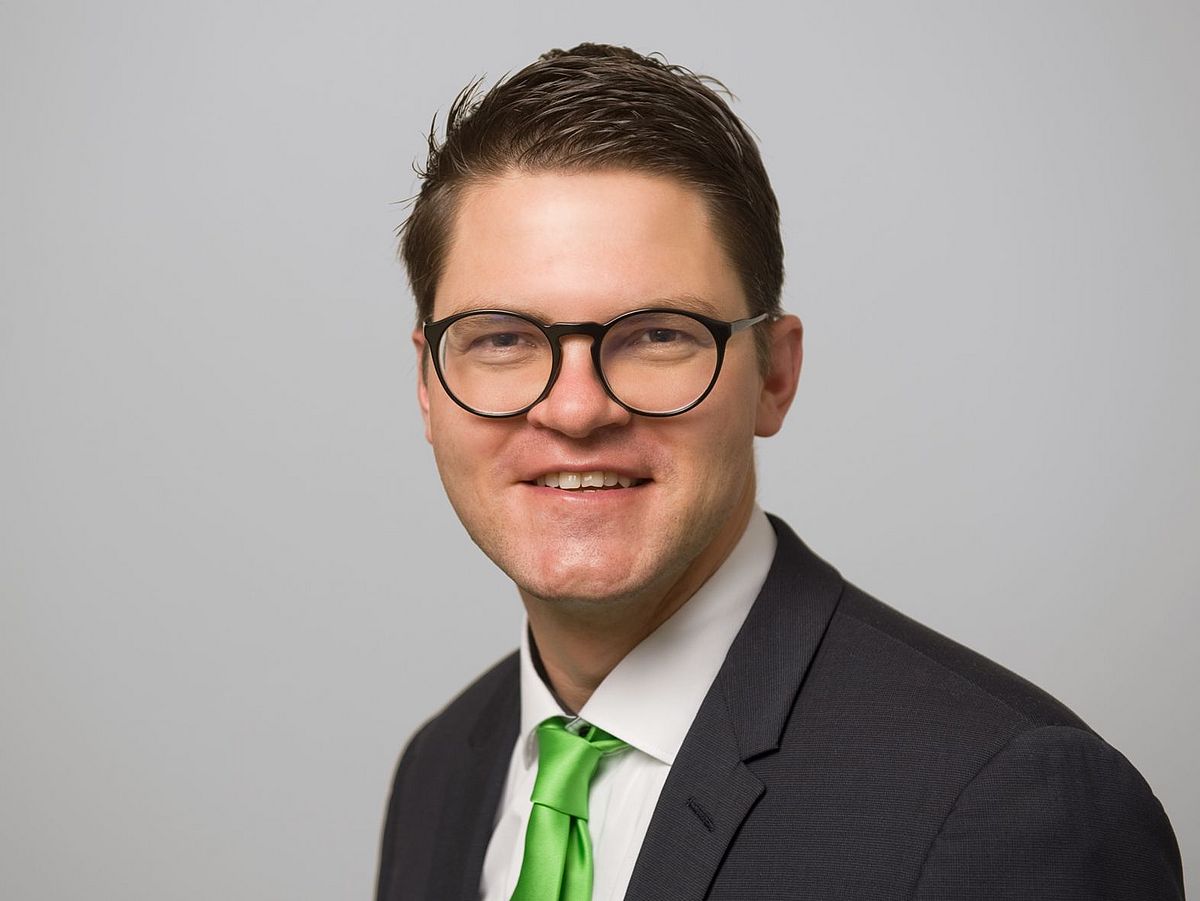2. Cohort
Theorizing Digital Innovation in Finance

Prof. Dr. Lars Hornuf
WiWi 2 Building, Room F4190
Phone: +49 (0)421 218 - 66 820
The focus project Theorizing Digital Innovation in Finance addresses the digital transformation of the financial sector. Technologies such as blockchain, applications of artificial intelligence, and the widespread use of alternative forms of financing go hand in hand with new financial services, business models, organizational practices, and new consumer behavior. Traditional and new market participants face the following challenges: Which financial services should be developed in the future? Which services are to be bought from the market and which are offered by the company itself? Which services should the organization offer in the B2B and B2C business? The focus project is devoted to these questions and will answer them in specific research projects. The conceptual framework is the concept of digital innovation, which states that digital technologies change organizations through and through (Barrett et al. 2015; Nambisan et al. 2017; Yoo et al. 2010), which is why new theoretical frameworks are also necessary to understand the effects of digitalization of financial services on the organizational and customer side (Wessel et al. 2020; Yoo 2013). Such frameworks have so far hardly been developed, which is why the focus project will use the context of digital financial innovations to develop and test theoretical frameworks by using qualitative and quantitative methods.

Prof. Dr. Lars Hornuf
WiWi 2 Building, Room F4190
Phone: +49 (0)421 218 - 66 820
2021
Finance Seminar (Skema Business School Paris) • Sustainable Finance Research Seminar (University of Zurich) • FinTech and cryptofinance Webinar (Sorbonne Université) • Ringvorlesung Universelle Eigenschaften des Entscheidens (Univesität Bremen) • ITM (Information Technology Management) Distinguished Speaker Series (Scheller College of Business - Georgia Tech) • Data Science Forum (Univesität Bremen) • Field Day in Field Experients (Univesität Bremen) • Volkswirtschaftliches Forschungskolloquium (Universität Regensburg) • Finance Research Seminar (TU München) • IFABS Conference (Oxford University) • European Alternative Finance Research Conference (Utrecht University)
2020
Herbsttagung Frankfurter Institut für Risikomanagement und Regulierung (FIRM) (House of Finance, Goethe Universität) • Danish Finance Institute Seminar (University of Southern Denmark) • Digitalisierung der Finanzdienstleistung (Verbraucherzentrale Bundesverband) • AI in Finance: Privacy and Data Protection Sectoral Dialogue (Singapore Management Univesity) • Determinants of Non-cash Transactions Conference (Hochschule Bremen)

Prof. Dr. Lars Hornuf
WiWi 2 Building, Room F4190
Phone: +49 (0)421 218 - 66 820
- Cumming, Douglas, Lars Hornuf, Moein Karami and Denis Schweizer (2021): Disentangling Crowdfunding from Fraudfunding, Journal of Business Ethics, im Erscheinen. SSRN.
- Cumming, Douglas und Lars Hornuf (2021): Marketplace Lending of SMEs, Strategic Entrepreneurship Journal, im Erscheinen. SSRN.
- Hornuf, Lars, Eliza Stenzhorn und Tim Vintis (2021): Are Sustainability-Oriented Investors Different? Evidence from Equity Crowdfunding, im Erscheinen. Journal of Technology Transfer. SSRN.
- Hornuf, Lars, Tobias Schilling und Armin Schwienbacher (2021): The Relevance of Investor Rights in Crowdinvesting, Journal of Corporate Finance, im Erscheinen. Download..
- Göthner, Maximilian, Lars Hornuf und Tobias Regner (2021): Protecting Investors in Equity Crowdfunding: An Empirical Analysis of the Small Investor Protection Act, Technological Forecasting and Social Change, im Erscheinen. Download.
- Brandl, Barbara and Lars Hornuf (2020): Where Did FinTechs Come from, and Where Do They Go? The Transformation of the Financial Industry in Germany after Digitalization, Frontiers in Artificial Intelligence (Artificial Intelligence in Finance). Download.

Prof. Dr. Lars Hornuf
WiWi 2 Building, Room F4190
Phone: +49 (0)421 218 - 66 820
Digital and Hybrid Incubators and Accelerators – How to Enhance Entrepreneurial Ecosystems in Rural Regions?

Prof. Dr. Jörg Freiling
WiWi 1 Building, Room A2160
Phone: +49 (0)421 218 - 66870

Dr. Aki Harima
WiWi 1 Building, Room A2170
Phone: +49 (0)421 218 - 66876

Leon Marquardt
WiWi 1 Bulding, Room A2180
Phone: +49 (0)421 218 - 66873
Due to rural depopulation and unfavorable infrastructural settings the attractiveness of rural regions decreases, accompanied by migration of (potential) entrepreneurs from the countryside to the cities. While cities offer entrepreneurial ecosystems with matured support systems for entrepreneurs, rural regions are challenged to reinforce their entrepreneurship support infrastructure. Against this background, digital incubators and accelerators come to the fore and offer entrepreneurs in rural areas access to upfront knowledge, resources and experience without the need to move elsewhere. While digital incubation and acceleration emerges in entrepreneurial ecosystems, research is silent when it comes to applying these means to fostering entrepreneurship in rural areas. Accordingly, this project raises the following research questions: (i) Does the increasing digitalization enhance the digital divide between urban and rural areas in terms of entrepreneurial activity? (ii) (How far) Do digital and hybrid incubators and accelerators for rural areas increase the entrepreneurial activity? (iii) How to tap the potentials of rural and urban areas to allow mutual gains in the two settings; and does resource injection in rural areas by virtual or cyber-physical resource integration from urban areas (et vice versa) foster entrepreneurial activities? (iv) Do digital incubators and accelerators trigger renewal in rural areas? The project employs multiple case study research and rests on qualitative and quantitative data sources to respond to the research questions.

Prof. Dr. Jörg Freiling
WiWi 1 Building, Room A2160
Phone: +49 (0)421 218 - 66870

Dr. Aki Harima
WiWi 1 Building, Room A2170
Phone: +49 (0)421 218 - 66876

Leon Marquardt
WiWi 1 Bulding, Room A2180
Phone: +49 (0)421 218 - 66873
Digital decision support for logistics and operations management

Prof. Dr. Aseem Kinra
BIBA Building, Room 1060
Phone: +49 (0)421 218 - 66960

Prof. Dr. Herbert Kotzab
WiWi 2 Building, Room F3110
Phone: +49 (0)421 218 - 66981

Fabian Siekmann
BIBA Bulding, Room 1060
Phone: +49 (0)421 218 - 66963
Smart, resilient, technologically enhanced logistics systems are widely regarded as the future for organisations. Together Big Data, Artificial Intelligence (AI) and Machine Learning present many opportunities for enhancing decision making. This project looks at the design, usage and adoption of unstructured big data-based decision support in global supply chain management and operations. Amongst others we raise questions related to how automated decision support approaches aid in global supply chain decision-making, and can be designed in a user-friendly manner? Which contextual factors play a role in and influence the development of big data and AI capabilities and outcomes related to its adoption for global supply chain operations? Etc.

Prof. Dr. Aseem Kinra
BIBA Building, Room 1060
Phone: +49 (0)421 218 - 66960

Prof. Dr. Herbert Kotzab
WiWi 2 Building, Room F3110
Phone: +49 (0)421 218 - 66981

Fabian Siekmann
BIBA Bulding, Room 1060
Phone: +49 (0)421 218 - 66963
Information, Digitalization, and Authoritarian Political Systems

Prof. Dr. Torben Klarl
WiWi 2 Building, Room F2170
Phone: +49 (0)421 218-66560

Prof. Dr. Michael Rochlitz
WiWi 2 Building, Room F2040
Phone: +49 (0)421 218-66990


Olga Masyutina, M.A.
WiWi 2 Building, Room F2250
Phone: +49 (0)421 218-66991
The project focuses on the relationship between innovation in the field of digital technologies, and authoritarian political systems. How do innovation systems work in authoritarian states, and what is the overall economic connection between innovation and digital surveillance? What is the influence of digital control and authoritarian politics on technology transfer, spillovers and joint ventures in the field of digital technologies? And what are the economic, political and ethical implications for actors in democratic states that are working with partners in authoritarian political systems? Based on a number of newly developed general equilibrium models, we study these questions with the help of laboratory experiments in the recently funded BreLAB of Bremen University, as well as empirical research in Russia and China.

Prof. Dr. Torben Klarl
WiWi 2 Building, Room F2170
Phone: +49 (0)421 218-66560

Prof. Dr. Michael Rochlitz
WiWi 2 Building, Room F2040
Phone: +49 (0)421 218-66990


Olga Masyutina, M.A.
WiWi 2 Building, Room F2250
Phone: +49 (0)421 218-66991
Self-quantification in the Context of Consumer-technology interfaces

Prof. Dr. Maik Eisenbeiß
WiWi 2 Building, Room F3280
Phone: +49 (0)421 218-66500

Prof. Dr. Kristina Klein
WiWi 2 Building, Room F3210
Phone: +49 (0)421 218-66970


Charlotte Pietschmann
WiWi 2 Building, Room F3020
Phone: +49 (0) 421-218-66574
"Self-quantification" or "self-measurement" (also known as "personal analytics", "quantified self" or "self tracking") has been an ongoing trend for several years now. Those terms describe the activity in which people voluntarily and autonomously monitor themselves and record certain events in their lives using digital technologies. Thereby, data is generated and analyzed in order to, for example, create various statistics for the user.
Research has already dealt with various aspects of self-measurement, e.g., with the question which factors make users accept and use "wearables". Research assumes that mainly positive effects on user behavior occur, e.g., more exercise to achieve certain goals or the identification of bad habits and unhealthy diets. Nevertheless, these positive effects come along with many concerns and potentially negative effects: data protection advocates warn against permanent surveillance and the disclosure of sensitive data that could be made available to third parties such as health insurance companies and companies such as pharmaceutical manufacturers through sharing via social networks. Negative effects can also arise directly at the user’s side: The constant tracking of activities or one's own eating behavior, for example, can become an obsession.
The project investigates, among others, the underlying motivations for the use of “consumer-technology interfaces.” It also aims to identify the short and long-term effects of the use of “consumer-technology interfaces”. Furthermore, data protection concerns of users of “consumer-technology interfaces” will also be looked at in this project.

Prof. Dr. Maik Eisenbeiß
WiWi 2 Building, Room F3280
Phone: +49 (0)421 218-66500

Prof. Dr. Kristina Klein
WiWi 2 Building, Room F3210
Phone: +49 (0)421 218-66970


Charlotte Pietschmann
WiWi 2 Building, Room F3020
Phone: +49 (0) 421-218-66574
Digital empathy in human-machine interaction

Prof. Dr. Kristina Klein
WiWi 2 Building, Room F3210
Phone: +49 (0)421 218 - 66970

Prof. Dr. Georg Müller-Christ
WiWi 1 Building, Room A3310
Phone: +49 (0)421 218 - 66780

Dr. Denis Pijetlovic
WiWi 1 Building, Room A3360
Phone: +49 (0)421 218 - 66782

Lisa-Marie Seyfried
WiWi 1 Building, Room A3370
Phone: +49 (0)421 218 - 66786
In the industrial and business world, digital assistants (chatbots) are increasingly used for business tasks. The use of chatbots ranges from simple conversation interfaces, such as FAQs, to intelligent booking systems, such as Google Duplex. With the increasing use of chatbots, it is not surprising that the research area of Conversational AI is growing. In particular, there is a interest in modelling human-like characteristics and behaviour in chatbots in order to generate (digital) empathy in human-machine interaction, since empathy is considered a core element for a successful perceived interaction with machines. However, the number of research projects investigating success conditions in the conception of an empathic human-machine interaction with chatbots is limited. In order to explore this area in more detail, this research project will focus on the identification of features that make chatbots more emphatic in their interaction with users. Therefore, the research project includes (1) modelling of a digital assistant and (2) the investigation of characteristics that promote empathy towards chatbots (e.g. by sentiment analysis). This digital assistant will (3) be applied and tested in the field of university management.

Prof. Dr. Kristina Klein
WiWi 2 Building, Room F3210
Phone: +49 (0)421 218 - 66970

Prof. Dr. Georg Müller-Christ
WiWi 1 Building, Room A3310
Phone: +49 (0)421 218 - 66780

Dr. Denis Pijetlovic
WiWi 1 Building, Room A3360
Phone: +49 (0)421 218 - 66782

Lisa-Marie Seyfried
WiWi 1 Building, Room A3370
Phone: +49 (0)421 218 - 66786
Machine Learning in Accounting and Finance

PD Dr. Christian Fieberg
WiWi 2 Building, Room F4380
Phone: +49 (0)421 218-66727

Prof. Dr. Thomas Loy
WiWi 2 Building, Room F4190
Phone: +49 (0)421 218-66940


This project investigates the suitability of machine learning approaches at the intersection of accounting and finance. Our main interests lie within „Macro-Accounting“ and „Accounting for the Anomaly Zoo“. „Macro-Accounting“ describes the association between accounting variables (e.g., firm performance) and macro-economic outcomes, such as economic growth or overall stock market performance. „Accounting for the Anomaly Zoo“ studies the explanatory power of accounting and finance characteristics for the cross-section of stock returns. „Anomaly Zoo“ is the collective term for the myriad of value relevant accounting and finance variables discussed by prior literature. Given the vast amount of influential variables and supposed non-linearities, the lack of application of machine learning approaches is quite surprising. In this project, we aim to close this gap in the literature. Recent works by Kalay et al. (2018) (for „Macro-Accounting“) and Gu et al. (2020) (for the „Accounting for the Anomaly Zoo“) serve as the starting point of our analyses.
Gu, S., Kelly, B., & Xiu, D. (2020). Empirical asset pricing via machine learning. Forthcoming in the Review of Financial Studies.
Kalay, A., Nallareddy, S., & Sadka, G. (2018). Uncertainty and sectoral shifts: The interaction between firm-level and aggregate-level shocks, and macroeconomic activity. Management Science, 64(1), 198-214.

PD Dr. Christian Fieberg
WiWi 2 Building, Room F4380
Phone: +49 (0)421 218-66727

Prof. Dr. Thomas Loy
WiWi 2 Building, Room F4190
Phone: +49 (0)421 218-66940


- Fieberg, Christian, Kerstin Lopatta , Thomas Tammen und Sebastian A. Tideman (forthcoming): Political affinity and investors’ response to the acquisition premium in cross-border M&A transactions – A moderation analysis. Strategic Management Journal. Download.
- Pakhchanyan, Suren, Christian Fieberg , Daniel Metkound Thomas Kaspereit (forthcoming): Machine learning for categorization of operational risk events using textual description. Journal of Operational Risk.
- Bassen, Alexander, Christian Fieberg, Othar Kordsachia , Kerstin Lopatta und Bastian Nendza (2021):Sustainable Development Investing: Creating a scalable SDI-aligned index. Financing for Sustainable Development Office (FSDO) of the United Nations, in its capacity as Secretariat of the Global Investors for Sustainable Development (GISD) Alliance. Download.
- Tubbenhauer, Tobias,Christian Fieberg und Thorsten Poddig (2021): Multi-Agent-Based VaR Forecasting. Journal of Economic Dynamics and Control, Vol. 131, 2021. Download.

PD Dr. Christian Fieberg
WiWi 2 Building, Room F4380
Phone: +49 (0)421 218-66727

Prof. Dr. Thomas Loy
WiWi 2 Building, Room F4190
Phone: +49 (0)421 218-66940


Former Members
Dr. Milan Frederik Klus

Prof. Dr. Lauri Wessel


